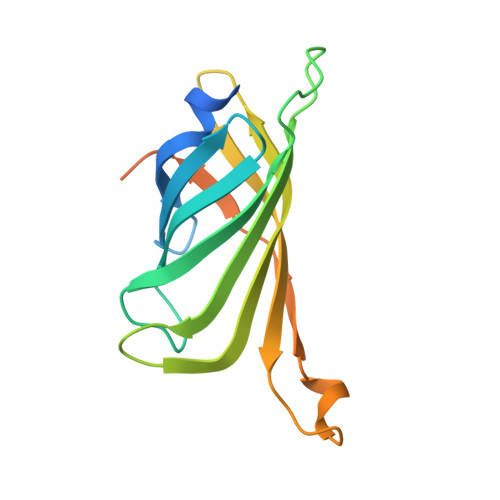Manganese Transfer Hydrogenases Based on the Biotin-Streptavidin Technology.
Wang, W., Tachibana, R., Zou, Z., Chen, D., Zhang, X., Lau, K., Pojer, F., Ward, T.R., Hu, X.(2023) Angew Chem Int Ed Engl 62: e202311896-e202311896
- PubMed: 37671593
- DOI: https://doi.org/10.1002/anie.202311896
- Primary Citation of Related Structures:
8P5Y, 8P5Z - PubMed Abstract:
Artificial (transfer) hydrogenases have been developed for organic synthesis, but they rely on precious metals. Native hydrogenases use Earth-abundant metals, but these cannot be applied for organic synthesis due, in part, to their substrate specificity. Herein, we report the design and development of manganese transfer hydrogenases based on the biotin-streptavidin technology. By incorporating bio-mimetic Mn(I) complexes into the binding cavity of streptavidin, and through chemo-genetic optimization, we have obtained artificial enzymes that hydrogenate ketones with nearly quantitative yield and up to 98 % enantiomeric excess (ee). These enzymes exhibit broad substrate scope and high functional-group tolerance. According to QM/MM calculations and X-ray crystallography, the S112Y mutation, combined with the appropriate chemical structure of the Mn cofactor plays a critical role in the reactivity and enantioselectivity of the artificial metalloenzyme (ArMs). Our work highlights the potential of ArMs incorporating base-meal cofactors for enantioselective organic synthesis.
Organizational Affiliation:
Laboratory of Inorganic Synthesis and Catalysis, Institute of Chemical Sciences and Engineering, École Polytechnique Fédérale de Lausanne ISIC-LSCI, BCH 3305, 1015, Lausanne, Switzerland.


















